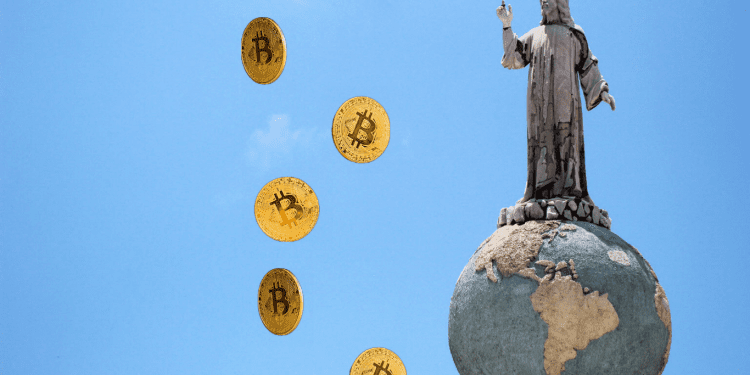- El Salvador launched a pilot program in collaboration with My First Bitcoin and Bitcoin Beach to introduce Bitcoin education in public schools.
- 150 teachers to undergo training through a 10-week Bitcoin Diploma curriculum, spotlighting the adverse impacts of conventional financial systems.
- The initiative aims to foster a Bitcoin-literate generation, with aspirations to extend the program globally, promoting financial literacy and sovereignty.
El Salvador, the pioneer in recognizing Bitcoin as legal tender, is now venturing a step further by implementing Bitcoin education into public school curriculum. Exactly two years after the significant legislation was enacted, the nation’s Ministry of Education initiated a pilot program aimed at educating the younger generation about the facets of Bitcoin.
The Ministry has joined forces with native Bitcoin projects – Bitcoin Beach and My First Bitcoin to foster a Bitcoin-informed generation. Founded by John Dennehy, My First Bitcoin, is spearheading this educational revolution, starting with a program to train 150 public school teachers. These teachers will undergo a training regimen that leverages a 10-week Bitcoin Diploma curriculum that is open-source and readily accessible online, a strategy reminiscent of the massive open online courses (MOOCs) offered by universities worldwide.
Interestingly, the curriculum mirrors themes reverberated in Saifedean Ammous’s seminal work, “The Bitcoin Standard”. While Ammous is currently advising El Salvador’s President Nayib Bukele and has become a notable figure in the nation’s Bitcoin trajectory, it is important to note that he has not directly contributed to this educational material. The curriculum, constructed by a small yet dedicated team of teachers from El Salvador and the United States, elucidates the concept of currency debasement and introduces students to the ‘dark side of fiat’, delineating the pitfalls and challenges associated with conventional financial systems.
Chiseling a Path Despite Bumps
Dennehy acknowledges that the journey hasn’t been devoid of challenges. Yet, the reception from students over the past two years has been overwhelmingly positive, painting a picture of readiness and eagerness to understand Bitcoin’s revolutionary narratives. Moreover, El Salvador has been a catalyst, igniting curiosity in other Latin American governments who are showing a burgeoning interest in initiating similar educational ventures in their respective countries.
Despite a bumpy start, including the initial technical glitches with the Chivo Bitcoin Wallet, El Salvador persists in its vision, transforming adversities into opportunities. The heightened interest in Bitcoin education is mirrored in the tourist surge the country is witnessing, an indication of the global interest and the spotlight the country has garnered through its bold moves.
The Roadmap to a Global Vision
As the project advances, there is palpable enthusiasm coupled with a robust belief in the power of quality education. This educational initiative is not confined to the borders of El Salvador. Dennehy articulates a global vision, one where Bitcoin education transcends geographical boundaries to create a world populace well-versed with cryptocurrency, starting with grassroots education initiatives spanning over 20 countries.
The venture is beyond just education; it embodies a vision, a roadmap leading to a globally educated populace ready to navigate the intricacies of a digital financial future with informed choices and empowered decisions. El Salvador is setting a precedent for nations globally to observe and potentially follow suit.














